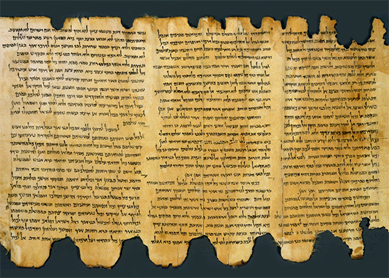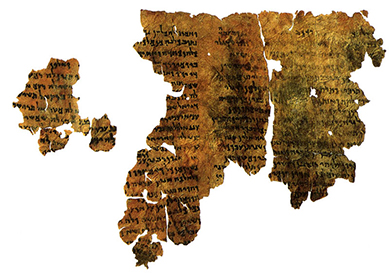Q. What scriptures and in what language would have been used in the first-century Palestine? I am particularly interested in Jesus’ use of
A. The evidence we have falls into three main categories: (1) physical evidence such as the Dead Sea Scrolls and a variety of inscriptions; (2) linguistic evidence within the texts composed around the turn of the era, for example New Testament texts; and (3) references to or citations of scriptural texts as authoritative and normative.
It is clear from the evidence that while there was not yet a definitive version or list of scriptural texts—that is, the canonical process had not yet reached the point of a fixed text for any particular community—there were texts that were scriptural and authoritative. Some of these were especially popular, such as the five books of Moses, the Psalms, and Isaiah.
The mix of actively used languages in first-century C.E. Palestine included Greek, Aramaic, and Hebrew and, to a lesser extent, Latin—each used by different communities in different ways. But here another distinction is in order, namely the distinction between a spoken language and one used in a primarily textual way. To give a famous example: in
The citations and understanding of





